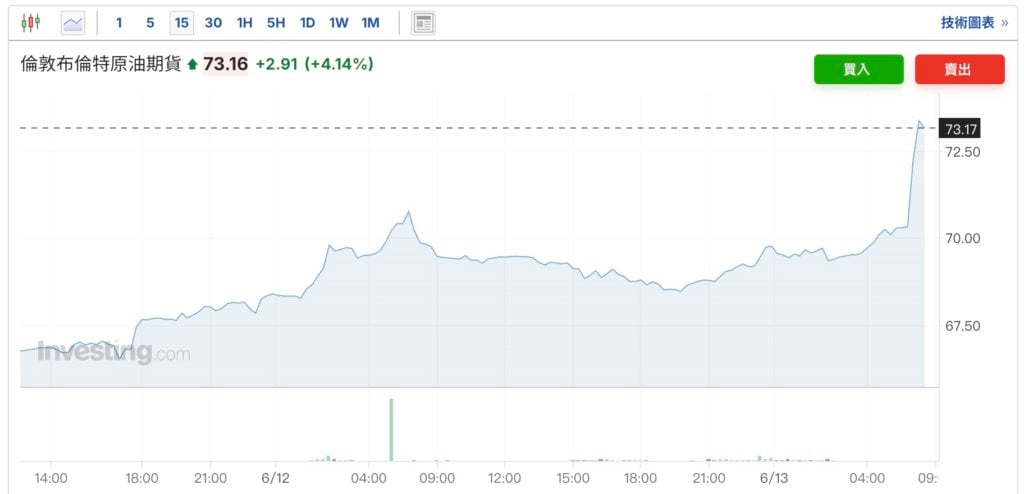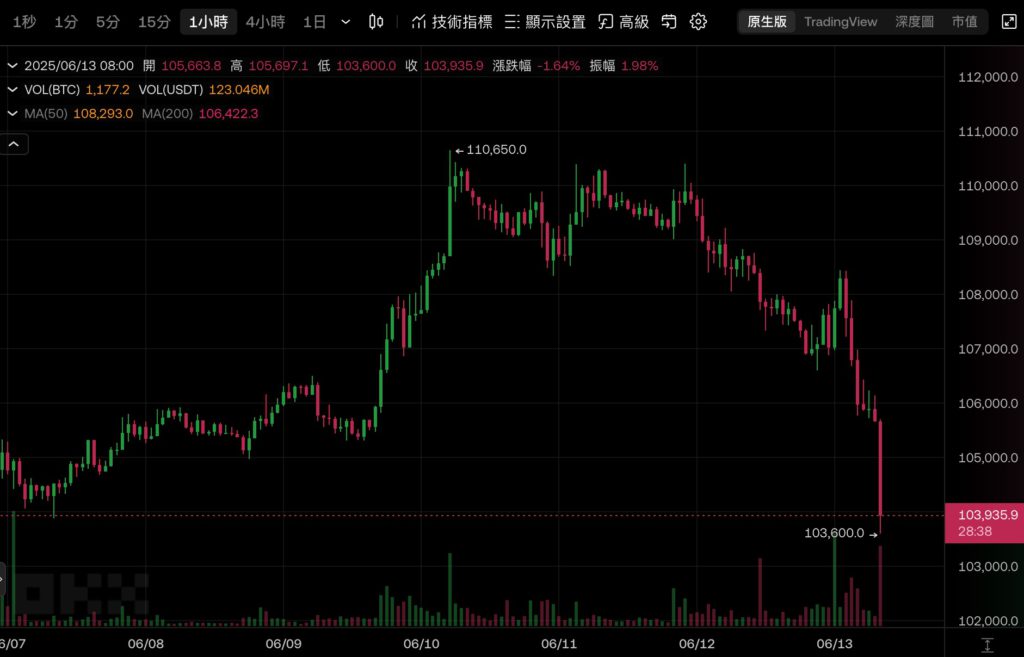Middle East crisis erupts again! According to Reuters this morning, citing Iranian state TV, Israeli warplanes launched a surprise attack near Tehran, with explosions reported at multiple military facilities and air defense systems activated. Iran's Defense Ministry subsequently claimed to have intercepted "multiple drones" but has not mentioned the scale of casualties.
Israel Enters Emergency State
Simultaneously, the Israeli Defense Department announced an emergency state for the next 48 hours, prohibiting educational activities, gatherings, closing workplaces, and allowing only "essential activities" nationwide.
Analysis firm BICOM pointed out that Israel's actions aim to slow down Iran's uranium enrichment progress and weaken Iran's military support to Hezbollah, Hamas, and Houthi armed groups.
Previously, Israeli military officials stated that Iran's nuclear program poses an existential threat to Israel.
The US State Department merely said it was "closely monitoring" and did not publicly support the action, but had just announced the departure of non-essential diplomatic and defense personnel from the Middle East, clearly having been aware of the situation in advance.
Diplomatic and Economic Backlash
Against the backdrop of escalating Middle East tensions, global economics is also affected. The current conflict's direction depends on whether Iran will immediately retaliate. If both sides exercise restraint, the event may remain at the shadow war level; however, any misjudgment could trigger the most intense conventional conflict in the Middle East in a decade. Experts analyze potential Iranian response options:
- Attack Israeli mainland with ballistic missiles or drones
- Authorize Hezbollah in Lebanon to expand rocket attacks
- Use pro-Iranian militias in Iraq and Syria to attack US and Israeli targets
- Escalate Houthi armed group harassment of oil tankers in the Red Sea
If Iran targets the Hormuz Strait, over 21 million barrels of maritime oil per day could be disrupted. The International Energy Agency (IEA) estimates that the strait's daily flow accounts for one-third of global oil transportation, and oil prices could experience severe short-term fluctuations if restricted.
The energy market is already responding quickly, with Brent crude rising 4% in early Asian trading.

Bitcoin Drops Below $104,000
In the cryptocurrency market, Bitcoin quickly plummeted, breaking below $104,000, currently trading at $103,935. Ethereum dropped even more, falling below $2,550, with a decline of over 8% in the past 24 hours.
Whether this raid becomes the trigger for a full-scale conflict will be crucial in the coming days.








